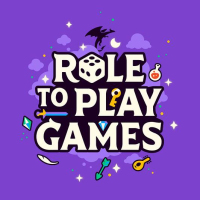A PhD candidate’s final week spirals into chaos when their seven-year EEG brain-interface project—built to transmit thoughts between minds—is abruptly shuttered by the university. With only seven days left on the supercomputer, Artificial Life asks: Will you fight to salvage your life’s work, or uncover the dark truths lurking behind its shutdown?
The Dream That Outlived the Lab: Seven Years of Obsession
Behind the game’s tension lies a story of unyielding passion—and ruthless pragmatism.
1. A Revolution in Thought: Your device, a breakthrough in Electroencephalography (EEG), promised to bridge minds: imagine a parent feeling their child’s joy from miles away, or a scientist sharing breakthroughs directly with a colleague. Seven years of late nights, failed prototypes, and coffee-stained notebooks went into making it real.
2. The Board’s Cold Calculus: Why shut down a project with such potential? The university’s board prioritized profitable ventures—patentable tech, not “impractical” science. Their decision isn’t just personal; it’s a clash between academic idealism and corporate greed.
3. The Supercomputer Lifeline: That final week on the lab’s cutting-edge supercomputer isn’t just time—it’s your last shot. Without it, your data, designs, and dreams vanish forever. But with it, you might rewrite the rules… or expose the board’s secrets.
Choices That Define a Legacy: What Will You Fight For?
Every minute of those seven days matters. Your decisions shape not just the project’s fate, but your own.
1. Fix, Hide, or Share?: Use the computer to debug the device, stash its blueprints in hidden servers, or leak early findings to the press? Each path risks exposure: fixing it might draw the board’s wrath; leaking could rally allies… or get you sued.
2. Trust the Unlikely: The lab’s quiet janitor who hints at knowing “more than I should”? The ethics professor who once praised your work but now avoids you? Every interaction holds clues—and potential allies (or betrayers).
3. The Cost of Progress: Even if you save the device, what price are you willing to pay? Compromise your research to appease the board? Use it to “save” a colleague’s career, even if it distorts your original vision? The line between genius and desperation blurs fast.
Beyond the Lab: Emotions That Feel Too Real
Artificial Life isn’t just about tech—it’s about the people (and demons) driving you.
1. Grief for What Could Have Been: Flashbacks to your first successful thought-transmission test, or the night your advisor said, “This will change everything”—these moments humanize the struggle. The project isn’t just code; it’s a piece of your identity.
2. Moral Crossroads: What if your device could be misused? A rival researcher offers a deal: hand over the tech for funding, but it’ll end up in military hands. Do you prioritize your legacy… or the greater good?
3. Isolation vs. Connection: The lab feels empty without your team. A late-night chat with a grad student who believes in you, or a heated argument with a board member’s lackey—these interactions make the stakes feel personal.



















Preview: